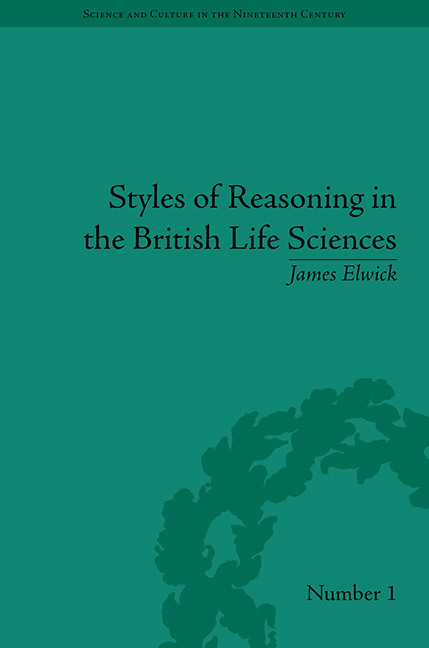6 - Alternative Explanations and New Generations, 1850–1858
Summary
HMS Rattlesnake returned to England in October 1850. Travelling to London, Huxley gave a letter to Owen from his Australian mentor Macleay. Macleay had been one of the first British researchers to travel to the Muséum d'Histoire Naturelle after the war, working with Cuvier, Geoffroy St-Hilaire and the entomologist P. A. Latreille. The letter was a communication from one patron to another: Macleay would consider any favour Owen did for Huxley as a favour for Macleay himself. He recommended Huxley's researches and drawings on the ‘lower pelagic animals’ as especially relevant to ‘the subject of your “Parthenogenesis”’. Owen then applied to the Admiralty for another appointment for Huxley in order for the young surgeon to prepare his Rattlesnake materials. He saw Huxley as a talented researcher who would advance his own work on parthenogenesis and metagenesis (hereafter simply metagenesis). But in the early 1850s Huxley started to turn on him and to subvert metagenesis, as palaetiology spread to a larger community. The first two thirds of this chapter thus examine the clash of different styles of reasoning. This fight occurred between Owen and Huxley over the reality of metagenesis and spermatic force. Huxley rejected spermatic force by denying the validity of Owen's evidence.
The last third of the chapter then looks at Huxley's drive to professionalize life science. This problematic term, ‘professionalize’, is not used to denote a move to make the field soon to be known as biology more specialized, more laboratory-based or more independent. Instead ‘professionalize’ is used here to refer to a more negative process: the systematic exclusion of those life researchers identified as outsiders. Huxley sought to restrict entry to his group, keeping the supply of scientists artificially scarce and their work adequately remunerative. One famous example of this boundary-strengthening can be seen in his well-known rejection of the Vestiges of the Natural History of Creation. Perhaps a related but more serious threat was the ‘populist’ science of Lewes, an alternative model to Huxley's cadre of elite biologists.
- Type
- Chapter
- Information
- Styles of Reasoning in the British Life SciencesShared Assumptions, 1820–58, pp. 131 - 160Publisher: Pickering & ChattoFirst published in: 2014



